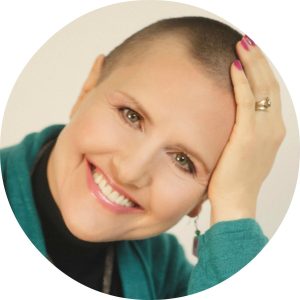Feminists: The New F Word, by Kristine Madera
Article first published in WNC Woman Magazine
Remember the first time you said that deliciously illicit F word? Yes, that one. You know you’ve said it, even if only to yourself. You probably learned in school from the boys whose older brothers inserted it like some wondrous new punctuation between every other word. Like sarcasm, the F word inhabits one of the lower realms of wit and communication, but that doesn’t diminish the thrill of the first time it slipped past your lips. Even if you didn’t know what it meant, the taboo of saying it zinged through your being as a self-initiation into the power of shock value.
 That’s what makes it so fun, that shock value. Every F word, no matter what letter it starts with, gets its power by shaking people up, by blasting the status quo with verbal micro quakes until the falseness of its fabricated foundation crumbles. Like anything, the more you say it, the less it shocks until it turns you into a parody of the impact you are trying to impart. The old F words, Feminist and Feminism, are like that. Officially inducted into English usage at the end of the 19th century after decades of suppression, they were, of course, immediately branded as treasonous.
That’s what makes it so fun, that shock value. Every F word, no matter what letter it starts with, gets its power by shaking people up, by blasting the status quo with verbal micro quakes until the falseness of its fabricated foundation crumbles. Like anything, the more you say it, the less it shocks until it turns you into a parody of the impact you are trying to impart. The old F words, Feminist and Feminism, are like that. Officially inducted into English usage at the end of the 19th century after decades of suppression, they were, of course, immediately branded as treasonous.
Imagine the power in hearing those words as a young woman of the time. Even if you hadn’t known the exact meaning, the idea of your gender wrapped up in the threat of an –ism and an –ist must have sent a woman’s heart thudding against her corset, whether in fervor or fear. Either way, for the intrepid, the words themselves invited a person—of either gender—to dig beneath the role-playing of the time to explore what it meant to be a woman. For those whose power rested in women living out the roles and duties assigned to them, the words would have been a mockery of all they believed was right and good about the fairer sex. I imagine there were no lack of women denouncing feminism, either. Those whose relative power and self-concept are rooted in maintaining the virtues of their assigned position are always the fiercest opponents of change.
The quakes from the force of those words crumbled quite a bit of the false social establishment of the era and built for women a foundation of rights—until time drained the shock out of both the word and, sadly, slowed the advances. By the 50s women themselves had nearly turned their backs on the movement, and after a resurgence in the 60s, the word became so diluted so that the most passion it raised was in the jugular veins that throbbed above the buttoned white collars and fraternity ties of the men that inhabited the as yet unbreached castle walls, whose disdainful mutterings morphed the word for a time into the feminazi version, which enflamed all sides for a while but never really got much traction.
By the time I was growing up, feminism was outdated, even for we girls. We supposedly had our rights and who wanted to be one of those angry braless women anyway? Power structures had gotten subtler and women were making inroads almost everywhere. With most avenues of access open, there seemed little left to “fight” for since it seemed so normal to see women in management, in the news, gaining ground. At least on the surface. The status quo is its own sort of brainwashing, with normal including the culturally-entrenched standard for women to self-select their second-rate status by pursuing men who were older, taller, smarter, made more money, scored higher on all the social markers. It wasn’t just the obvious carrot of faster upward mobility, sticks came in the form of labels like “loser” for a woman without a man, even if by choice, or “slumming” of “settling” for those who were daring enough or desperate enough to partner outside the approved custom.
For some, there was the option of stepping sideways, which was one that I took for a while twenty years ago. For a year and bit, I lived with a community of nuns, who, strangely, turned out to be among the most seditious feminist voices I knew at the time. But if you think about it, how can a community of women living as sister wives to the Jesus of social justice be anything other than a subversive organization? Unless they opt not to, which happens, an extension of the same cadre of sisterhood that, in the earliest days of feminism, preferred the safety of living the role society had assigned them than risk stepping into a larger world and finding out who they were for themselves. The rebellious sisters I lived with weren’t doing things like beating priests, stealing their collars, appearing in reverse drag to baptize babies, or anointing the dead.
They were simply asking questions.
Interestingly, one of the first questions I was asked as the head sister drove me from the airport to the rural area where the community lived, was “Do you believe in reincarnation?” Not the direction of inquisition that I was expecting from a nun. But not being a Catholic I didn’t know what to expect. I hedged in my answer because the truth was that I didn’t know, I hadn’t given it much thought in my mid-20s, life being challenging enough at the time without rehashing a long-forgotten one. I think she believed in reincarnation, though she didn’t come out and say it, but the subject came up a number of times while I was there.
 Like the question of reincarnation, the questions posed there scratched beneath the surface of status-quo life to see what oozed out. The favored topic was not so much the myriad injustices of the external world, but the false walls and paper tigers that reinforced the inner façade, the false self of who you think you are that so deftly hides the underlying enigma of who you really are and the innate, arcane mystery of life.
Like the question of reincarnation, the questions posed there scratched beneath the surface of status-quo life to see what oozed out. The favored topic was not so much the myriad injustices of the external world, but the false walls and paper tigers that reinforced the inner façade, the false self of who you think you are that so deftly hides the underlying enigma of who you really are and the innate, arcane mystery of life.
It’s from my time there that I learned that life isn’t about having the right answers, but in asking the most penetrating questions, the ones that lead deeper and deeper into the blinders I had put on my life, on my heart, and how those blinders rippled out into the world and perpetuate all manner of madness too often called normalcy. If you work it right, a single question like “What is love?”, pursued tenaciously, can suck you into the rabbit hole to the core of who you are, and what you find there will not be the answer you think, because there is no real answer, just an ever-deepening question.
In the end, I didn’t stay. Not because I wasn’t a Catholic—that was just a surface label and one that didn’t seem to matter. It was because I got hooked on asking the question, and even in the most subversive organization there are core questions that cannot be asked, mirrors so shrouded in holiness that they are too taboo to look into.
So what does all this have to do with this new F word Feminista? Unlike the previous F words, Feminista is more F-ish than the pure shock of an F word. It’s has a fun, frivolous determinism to it that makes being female the new hip thing. The word itself seems to be more connected to a path of self-empowerment and inspiration, of finding your way forward in adventure, rather than gearing up for a fight. I like that, actually, and wish more personal and social advancement were based in an enlivening permissive expansion of being rather than a blood-spilling battle. But I hope that today’s Feministas understand that just because the world is embracing them in a way that hadn’t been extended to their older sisters, it isn’t personal. Even if the roles open to our fair Faministas are far larger than in times past, our society has a habit of pre-picking winners and losers according to its own self-interest, to assign each person a role that reinforces, rather than challenges, cultural self-preservation. It’s nice that women are moving more and more into the winning category, but there is always a cost to slipping on your heels to walk the well-lit path. That cost has always been, and still is, your freedom.
To truly be free is to look past the shiny baubles and slick promises that life hands you and be seditious, to tenaciously pursue the question of what it is to be who you really are—as a woman, and as a human—and to have the courage to be true to that ever-deepening mystery in a world that always, desperately, wants you to be someone else.
Let’s Get Social

About Kristine
Pushing the edges of my consciousness has been my passion for as long as I can remember. This has flowed me into writing, podcasting, and becoming a hypnotherapist to help others push past limiting perceptions and expand their awareness and possibilities, too. Welcome to my world. Thanks for visiting!

